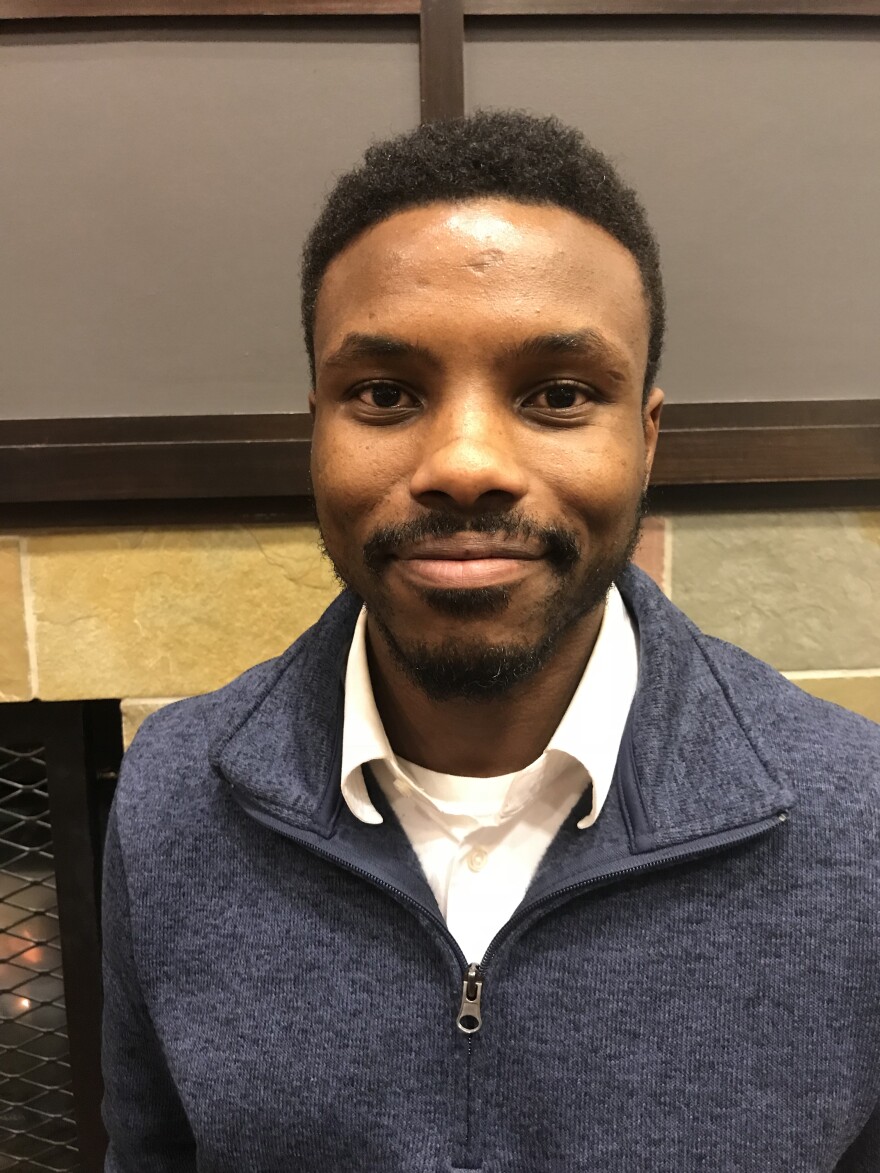Over the last few years, Vermont's election officials have implemented same day voter registration, online voter registration, and accessible voting tablets for people with disabilities. But on Tuesday, one group of citizens still found barriers at the ballot box. Vermonters who are not proficient in English.
In 2003, Mohamed Jafar’s family was one of the first Somali-speaking families to settle in Burlington. This spring, he finished up college in New Hampshire, and decided to move back home, where he got a job at the Department of Motor Vehicles. Soon after, the Burlington City Council appointed him to the Board of Voter Registration. On Tuesday he was at a polling place in the city's Old North End administering same-day registrations when a few Somali-speaking women came in.
“They immediately recognized me, they were like, ‘you! We know you speak Somali,’ they came over to me and asked for help, they said ‘hey, we just need to understand what is going on, you know, who am I voting for.’”
The women didn’t speak enough English to understand their ballots. In this case, Jafar was able to help. He translated phrases like “probate judge,” and read outloud the names of the candidates.
Jafar said the group of Somali-speaking women were not the only so-called new Americans he saw looking lost. Then, at the end of the day, Jafar went home and caught up with his mom, the woman who brought him to Burlington from Kenya when he was seven. They had both voted for the first time two years ago.
“She explained ‘hey, I’ve voted before,’ but she said, ‘I was just kinda given two slips of paper and I was told to go into the corner, and I recognized some of the names but the ballot itself -- it’s confusing.’”
In the last couple of days, VPR has heard from a number of people in Burlington complaining about a lack of language resources at the polls.
This is upsetting for Jafar, who had helped organize events specifically aimed at convincing new American citizens to vote in the midterms.
To be clear, Jafar said he does not think city or state officials intended to stop anyone from voting. He just doesn’t think minorities are on election officials’ minds. And, he said, nonprofit and volunteer organizations should not have to take it on themselves.
“They have their own work, you know. That should be something that the state and the city should take care of, and anticipate ahead of time,” he said.
“We just got hit with this," said Vermont Secretary of State Jim Condos on Thursday. "This is the first time we heard of it, it hadn’t been raised with us before.” Although Condos has not considered interpreter services before, he stressed his interest in identifying solutions in time for the 2020 elections.
“I’m always interested in finding ways to make voting more accessibile for Vermont voters,” he said. “I think it is our responsibility to help break down those barriers so eligible voters are able to register and vote.”
However, in Vermont there’s no legal requirement to accommodate non-English speaking voters.
According to the Voting Rights Act, all election information that is provided to voters in English must be provided for other languages too, with a caveat. The language must be spoken by a minimum number of voting-age citizens: either 10,000 people, or 5% of the jurisdiction’s population.
According to Secretary of State Jim Condos, no Vermont jurisdiction hits that threshold. The U.S. Census estimates 21,000 voting-age Vermont citizens speak a language other than English at home. However, not enough people speak just one of those languages to trigger the federal requirement.
Beth Anderson supervises elections for the City of Burlington. She said the city would not instigate new interpreter services without first receiving a request from a community.
“We do have a lot of languages spoken here and we haven’t had a specific request come our way, so it makes it hard to find out if there is a true need," said Anderson. "We do encourage voters, you know, they can bring a family or friend with them who can help with the interpretation.”
Mohamed Jafar did reach out to the Vermont Secretary of State’s office. And the office has offered to meet with him, other new Americans and city officials to assist voters who are not proficient in English.
Condos said a solution could include additional printed materials or interpreters, or possibly, Condos said, there could be a way to plug translation technology into the state’s new electronic voting tablets. These new devices are currently available for people with disabilities.
But to make Vermont a place where public officials think to anticipate his community’s needs, Mohamed Jafar said, Vermont needs to get more new Americans into Government.
“Hopefully,” Jafar started, and stopped, and then continued: “hopefully, I could be one of the legislators up there. And that's what I'm thinking is, I'm realizing the only way these changes are going to come about is if I do indeed get in there and say hey we need interpreters at these events.”





